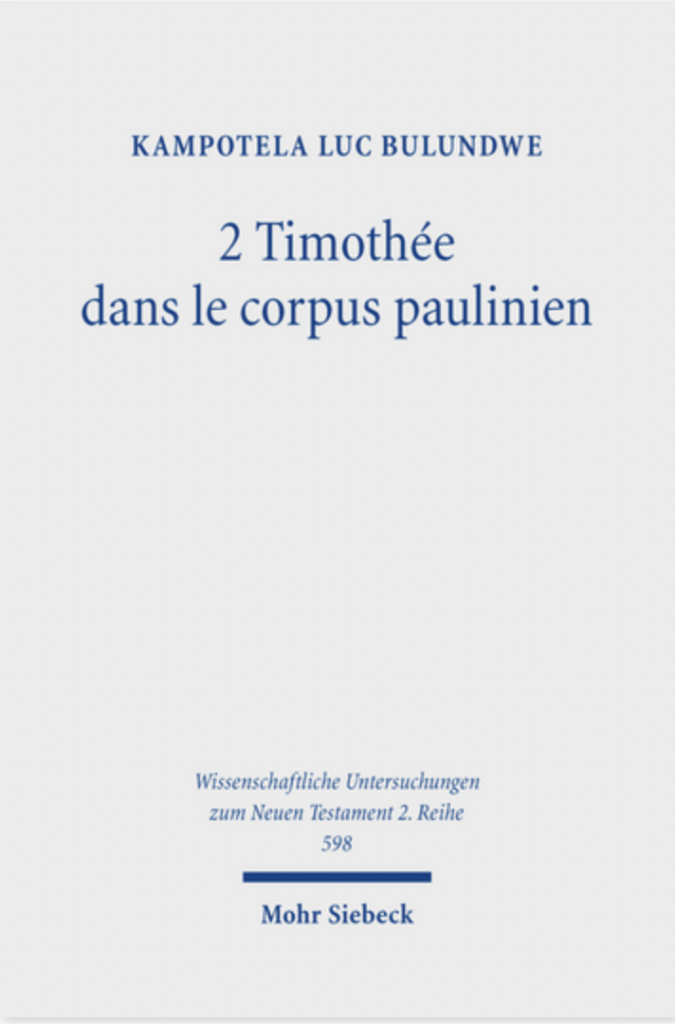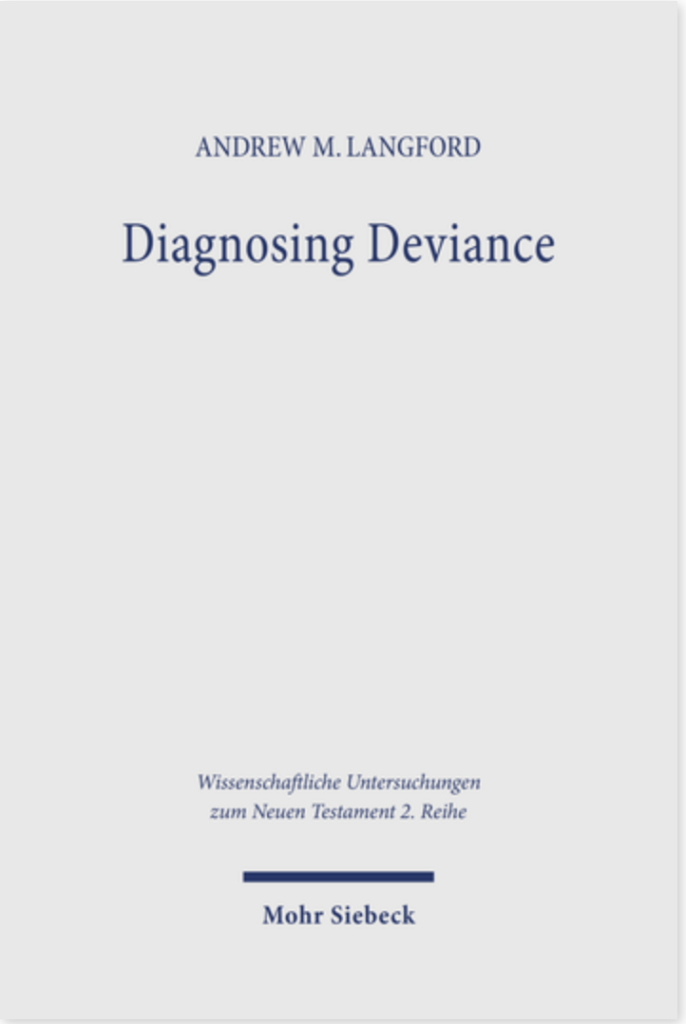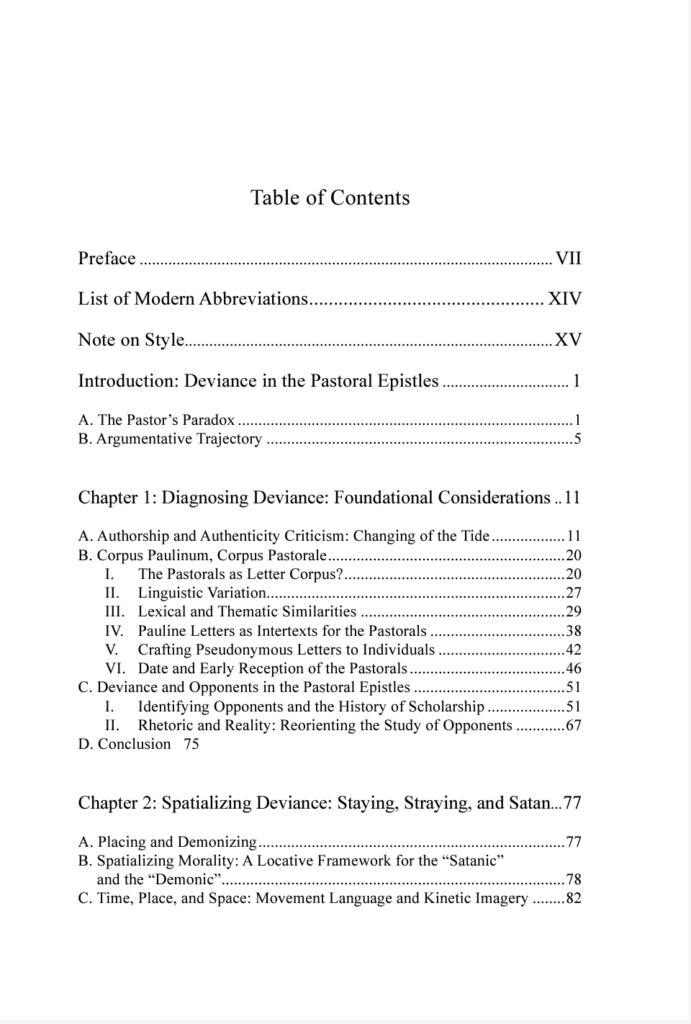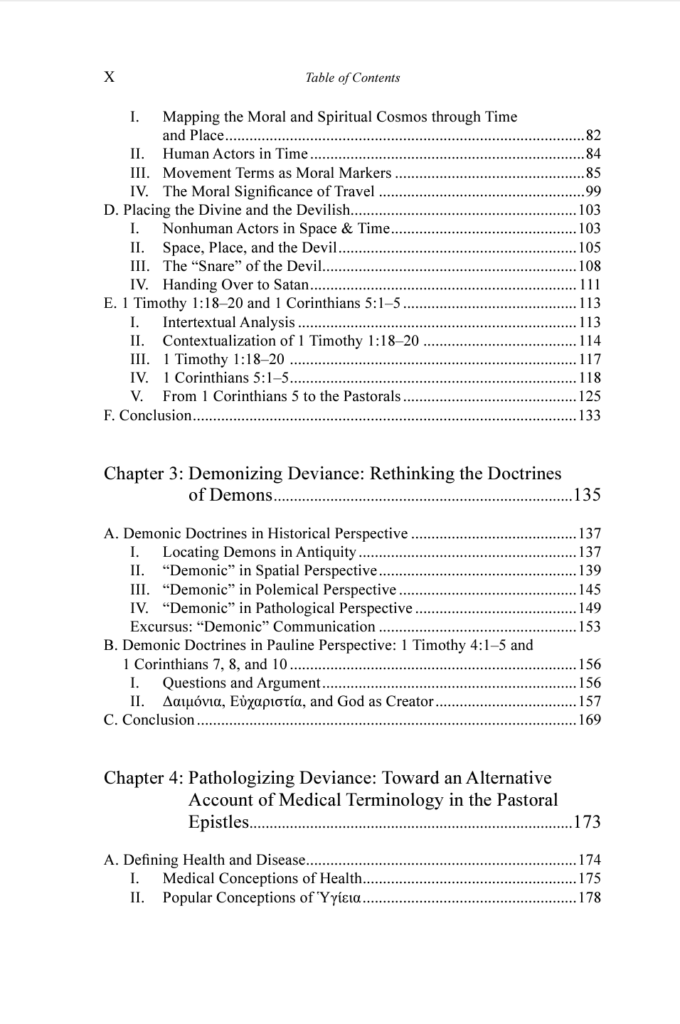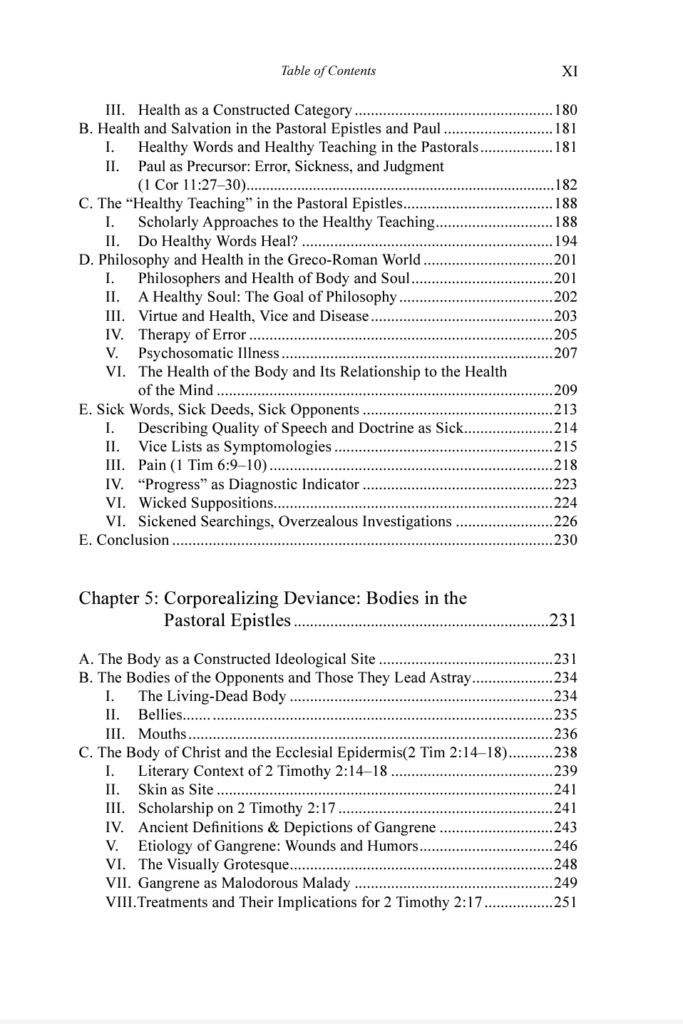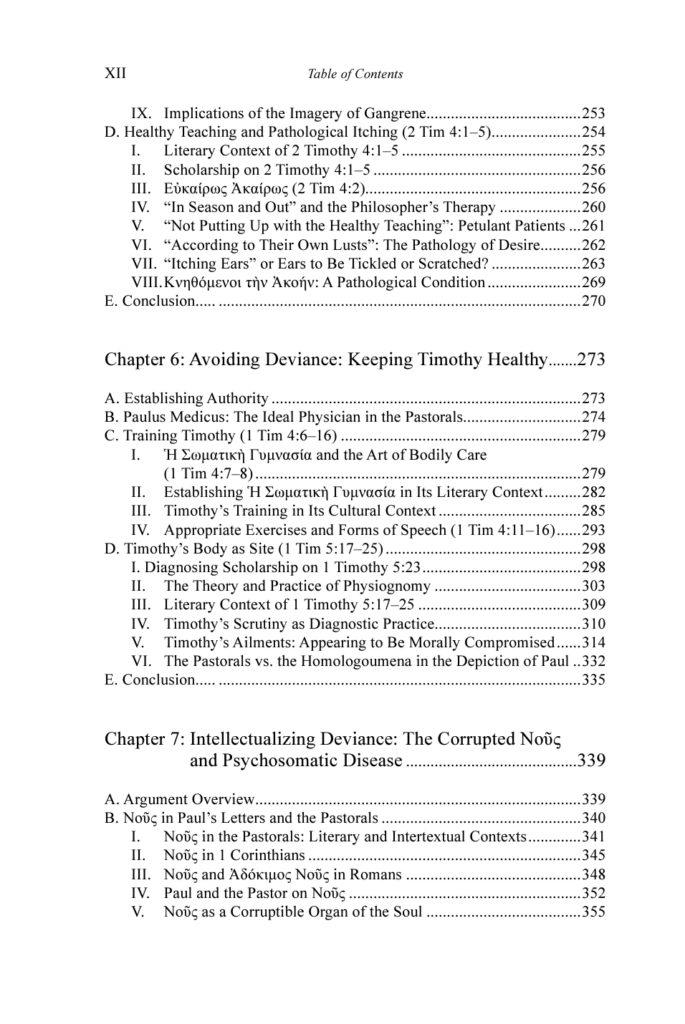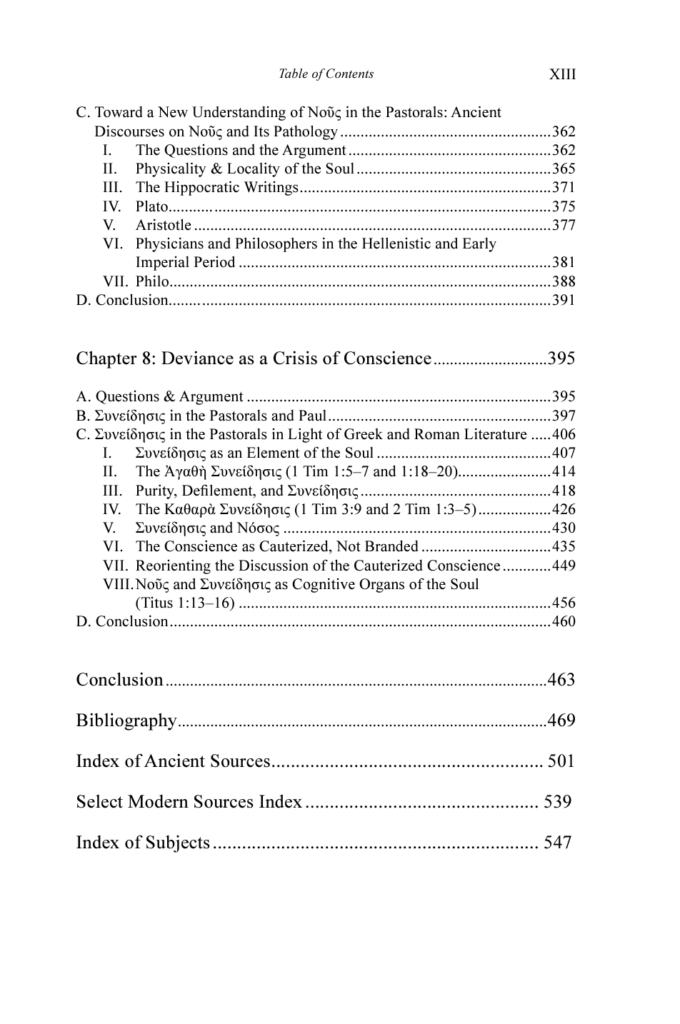A recent dissertation may be of interest to students of the Pastorals, especially those interested in questions of the authorship of the letters:
James Fickenscher, “A Rank-Based Analysis of Word Order and Codification in the Greek of the Pastoral Epistles.” PhD diss., Concordia Seminary, 2022.
The dissertation was completed under the direction of James Voelz. Voelz is not a specialist in the Pastorals, but I have used his 2-volume commentary on Mark (Concordia Commentaries; 2013, 2019) with profit. Here is the abstract:
“The relationship of word order and clausal structures with meaning, literary style, and authorial considerations in New Testament Greek is an often underdeveloped yet important field for reading, understanding, and interpreting the New Testament text. Navigating between a grammatical-historical and historical-critical reading of the New Testament, this dissertation analyzes the phenomena of word order and clausal structures afresh through the lens of systemic functional grammar, following the work of Michael Halliday. This project contributes a preliminary step forward in constructing a method that can account for and understand the purpose of word order patterns and variance from those patterns within New Testament Greek without presuming that variations are simply for emphasis or that they arise from a priori assumptions of an historical or authorial nature behind the text. As an initial test case, this dissertation explores the Pastoral Epistles, chosen due to their similarity in content, genre, and register, constructing a linguistic profile for each work that includes the codified patterns of word order and structure on the ranks of larger sections of text, individual clauses, and word groups within each clause that have a discrete, syntactical function. It is shown that a fuller understanding of word order, especially where variations or marked syntax occurs, both contributes to an overall analysis of the text, including issues of textual criticism and interpretation, as well as identifies multiple causes for changes in word order beyond simple emphasis. The phenomenon of rank shift, where a clause functions as a single, syntactical element within another clause, also impacts expected patterns of word order and clausal structure. This study then compares the linguistic profiles of Pastoral Epistles to one another and to other select texts of the New Testament, demonstrating both areas of general consistency and difference between the works. This suggests that some patterns under investigation are likely not significant for inter-textual discussions of literary style, provenance, or register, but many areas of word order do have potential import for larger analysis of literary or historical considerations as they are manifested within each work on a strictly linguistic basis.”
The entire dissertation is available here.

